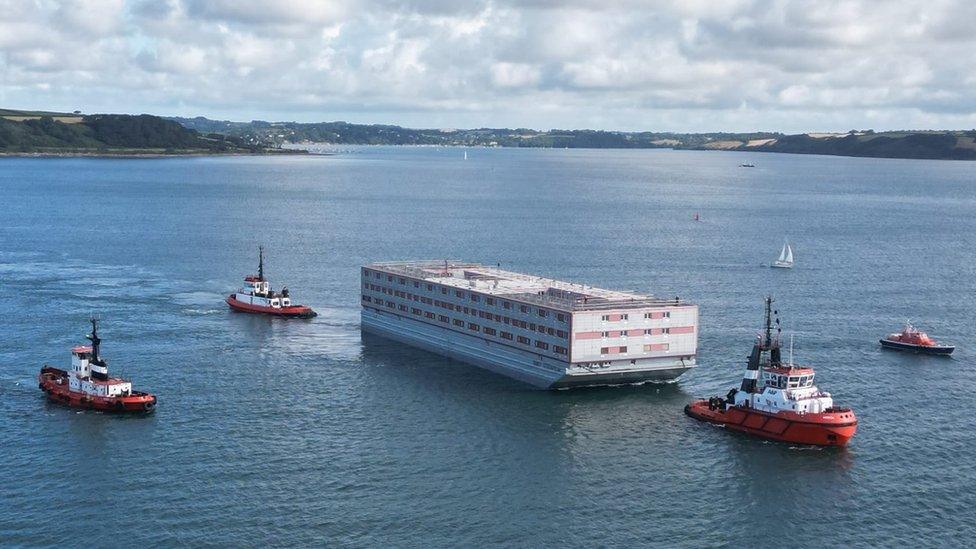Bibby Stockholm: The journey of the asylum barge
The incoming Labour government announced the controversial barge for housing asylum seekers would close.
- Published
As the last asylum seekers prepare to leave Bibby Stockholm, we look back at the story of the barge that has has been a controversial fixture for the people of south Dorset for more than a year.
The vessel was intended to be a temporary home for up to 500 single adult male asylum seekers under Home Office plans to ease the pressure on the asylum system.
Part of the immigration policy of the previous Conservative administration, it was cancelled as one of the first decisions of the incoming Labour government in July. The last of the asylum seekers held on board are set to leave.
From its instigation, it had attracted protests from Portland residents. Two local groups, both opposed the plan for differing reasons, started a series of protests.
It was March 2023 when the then Conservative Home Secretary, Suella Braverman, announced that accommodation vessels would be used to house asylum seekers to reduce the cost of using hotel, then said to be about £6m a day. Portland was the first location to be chosen.
Dorset councillors condemned the plan, with one describing it as "a devil's deal".
There were protests held on Portland - one Saturday in July 2023 saw a Stand up to Racism rally, while the No to the Barge group held a separate march.
The strong opposition was prompted by fears about the impact on services on Portland and concerns about the conditions on board the barge.
The Archbishop of Canterbury also joined calls for the government to delay it.
Justin Welby told the BBC: "This is about human dignity, and not just that of the refugees and asylum seekers - that is absolutely essential - it's the human dignity of these communities in which they are going to be."
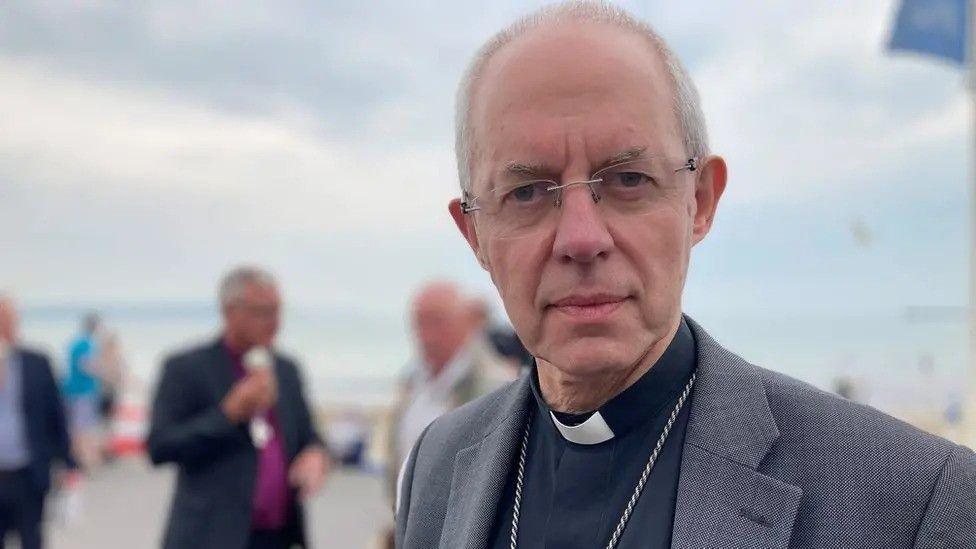
The Archbishop of Canterbury gave his views on Bibby Stockholm while in Dorset meeting young people and community groups.
Not long after, the Bibby Stockholm was taken to a dry dock in Falmouth to be refurbished.
An overhaul of the rooms was carried out by adding extra beds so that more people could fit on the barge, bringing its capacity up to 500.
Once the checks were complete, the Bibby Stockholm was towed overnight from Cornwall to Portland Port, arriving early on 17 July 2023.
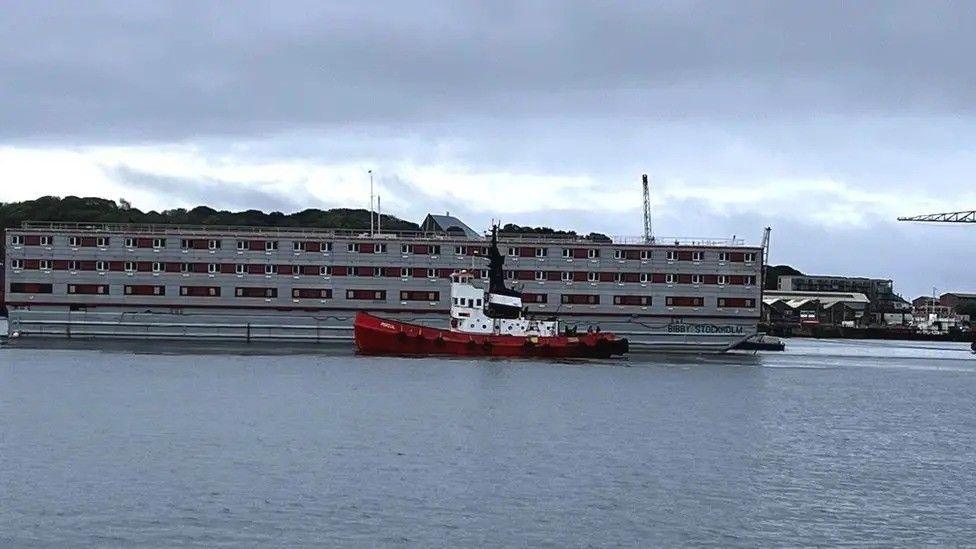
The three-storey Bibby Stockholm underwent inspections and a refit while at Falmouth
Dozens of protestors gathered at the crack of dawn, waiting for the Bibby Stockholm to make its final manoeuvre into the port.
One of them told the BBC the deal between Portland Port and the Home Office to dock the barge was "nothing to do about anything other than money".
On 8 August 2023, the first asylum seekers were transferred from local hotels, as well as ones across the country, to Portland by coach.
Fifteen men made it on to the vessel but a separate group of 20 refused to board.
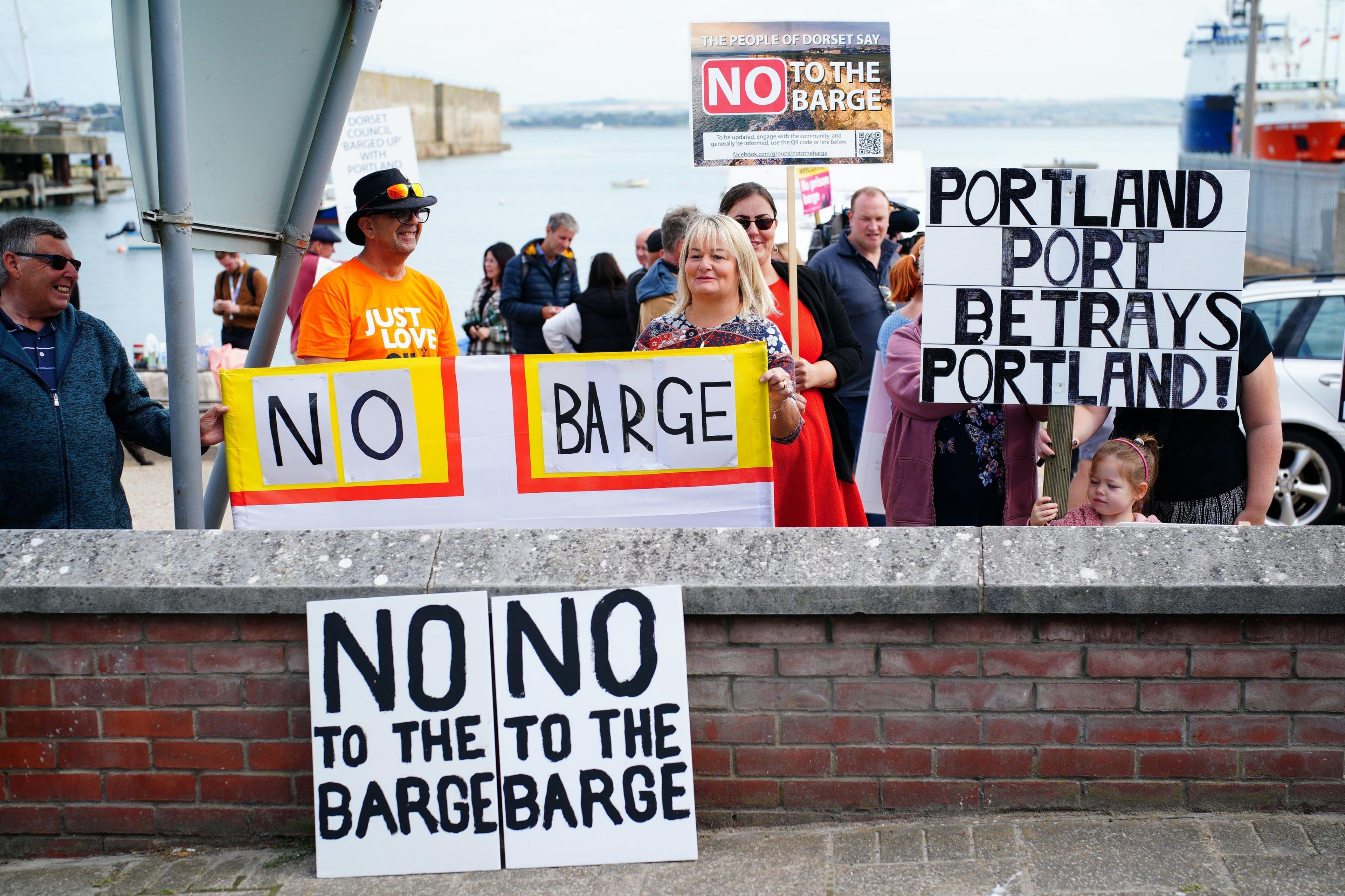
There was considerable local opposition to the barge coming to Portland
Once on board, there were mixed views from its residents.
One asylum seeker told the BBC the barge was like a prison and felt there was not enough room to accommodate up to 500 people onboard, as the government planned.
Another person praised the food and called the barge "quite a nice place" with small but "clean and tidy rooms".
More asylum seekers were expected onboard over the coming days and months, but in less than a week the group of 39 had to be moved to a hotel in Devon.
Traces of legionella bacteria had been found in the onboard water system which could have caused Legionnaires disease.
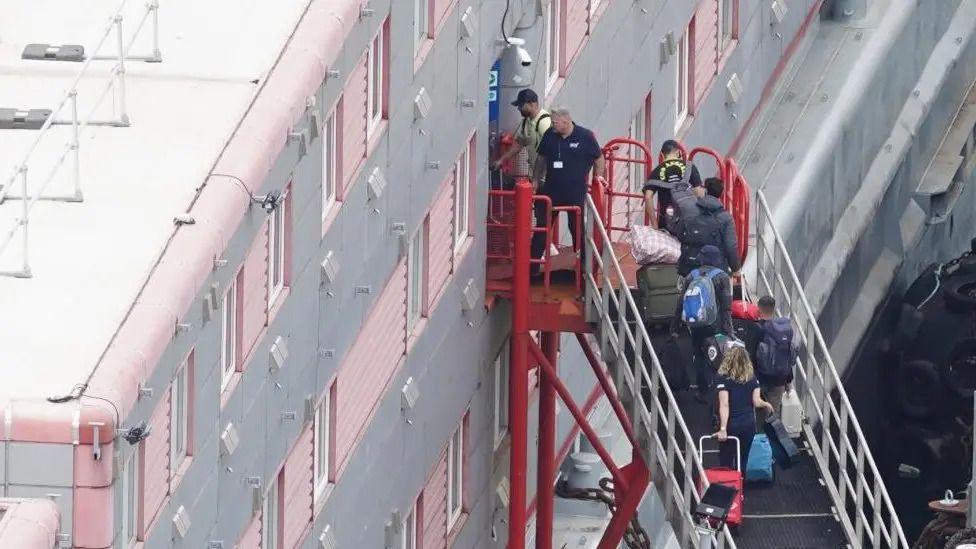
Asylum seekers were placed on board the barge on 7 August 2023 but were removed days later after tests revealed Legionella
Two months later, the Bibby Stockholm was deemed safe by the UK Health Security Agency.
Over the next few months more men embarked, with about 490 living onboard at its height.

Mr Farruku was found unresponsive on the Bibby Stockholm on 12 December
In December, an asylum seeker died on the barge. Twenty-seven-year-old Albanian Leonard Farruku was believed to have taken his own life.
Refugee charity Care4Calais and volunteer group Portland Global Friendship Group later held a vigil at the port.
Candy Udwin, of Stand Up to Racism Dorset, said: "People are devastated. We've always said the barge isn't a place to put people who have mental health issues. Something's got to be done."
In January, the Home Office revealed it was considering buying more barges to house migrants.
However the plans changed when Labour swept to power after the 2024 general election and promised to “restore order” to the asylum system amid protests by Bibby residents about lengthy delays in processing their claims.
The new government announced the contract for the vessel would not be renewed past January 2025.
The incoming Labour MP for South Dorset, Lloyd Hatton, told the BBC "We all knew right from the start this barge was never going to work and that it was going to cost a fortune."
An asylum seeker from Cameroon describes conditions on Bibby Stockholm to reporter Sophie Cridland
One of the last people left onboard the barge was Cedrick, an asylum seeker from Cameroon.
He said he was keen to properly start his “second chance at life” when he leaves the vessel.
The BBC has been told us that it is costing the government roughly £20,000 a day to charter but that doesn't include staffing, cleaning or maintenance costs.
We have contacted the Home Office to ask them for the the full amount of how much the barge has cost and they say for operational reasons they are unable to provide an exact amount.
Now with the final asylum seeker due to be moved off the barge it is just a matter of time before the Bibby Stockholm will be towed away.
Your Questions Answered
BBC South's Political Editor Peter Henley will be answering your questions about the Bibby Stockholm and the debate over immigration on BBC South Today at 18:30 on BBC One and BBC iPlayer.
If you have got a question then you can get in touch using the Contact Form below.
Get in touch
Do you have a story BBC Dorset should cover?
You can follow BBC Dorset on Facebook, external, X (Twitter), external, or Instagram, external.
Related topics
See also
- Published12 September 2024
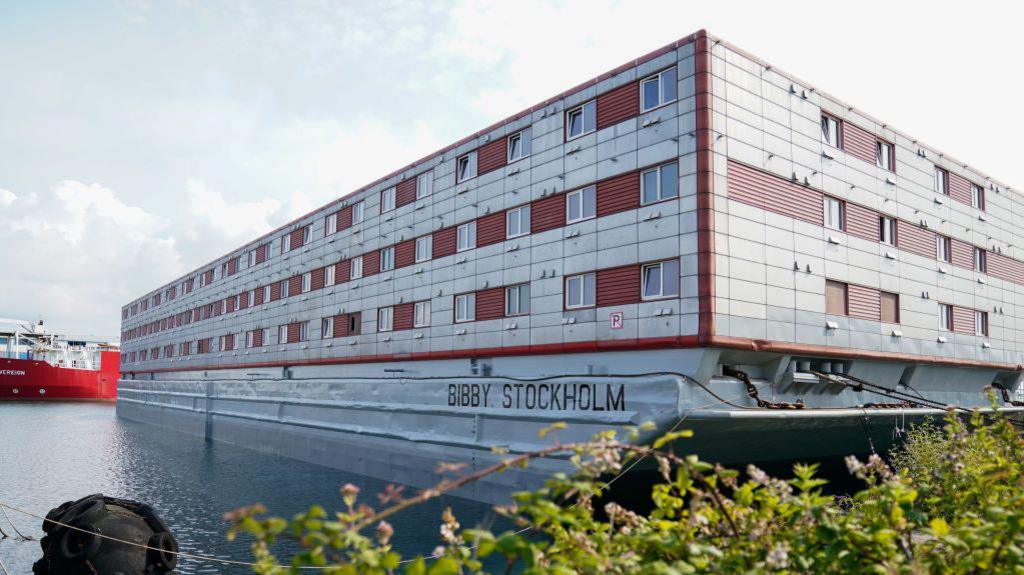
- Published17 July 2023
